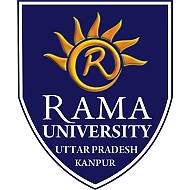Introduction about Ph.D. in Toxicology
Ph.D. in Toxicology from no.1 college is an advanced academic program that focuses on the study of the
adverse effects of chemical, physical, and biological agents on living
organisms and the environment. Toxicology is an interdisciplinary field that
combines elements of biology, chemistry, pharmacology, and medicine to
understand how toxic substances interact with biological systems and to develop
methods for assessing, managing, and mitigating risks associated with these
substances.
What is admission process for Ph.D. in Toxicology?
The admission Ph.D. in Toxicology can vary depending on the institution, but it
generally follows a similar set of steps. Here is an overview of the typical
process:
1. Research Programs and Institutions
Identify Programs: Research various universities and
institutions that offer a Ph.D. in Toxicology. Consider factors such as faculty
expertise, research facilities, funding opportunities, and the program's
overall reputation.
Contact Faculty: Reach out to potential advisors whose
research interests align with yours. Establishing a connection with faculty
members can be beneficial for your application.
2. Meet Eligibility Requirements
Educational
Background: Ensure you have
a relevant master’s degree (or in some cases, a bachelor’s degree with
significant research experience) in fields such as toxicology, biology,
chemistry, pharmacology, or a related discipline.
Academic
Performance: Maintain a
strong academic record, typically with a minimum GPA requirement (often around
3.0 to 3.5 on a 4.0 scale).
3. Prepare Application Materials
Transcripts: Obtain official transcripts from all
post-secondary institutions you have attended.
Standardized Test
Scores: Some programs may
require GRE scores. International applicants may also need to submit TOEFL or
IELTS scores to demonstrate English proficiency.
Letters of
Recommendation: Arrange for
2-3 letters of recommendation from professors or professionals who can attest
to your academic and research abilities.
Statement of
Purpose: Write a compelling
statement of purpose outlining your research interests, career goals, and
reasons for pursuing a Ph.D. in Toxicology. Highlight any relevant research
experience and explain why you are a good fit for the program.
Curriculum Vitae
(CV): Include a detailed CV
that outlines your academic achievements, research experience, publications,
presentations, and any relevant work experience.
Research Proposal: Some programs may require a research
proposal outlining a potential project you would like to pursue during your
Ph.D.
4. Submit the Application
Application Form: Complete the online application form
provided by the institution.
Application Fee: Pay the application fee, if required.
Submission: Ensure all required documents are
submitted before the application deadline.
5. Interview Process
Initial Screening: Applications are reviewed by the
admissions committee. Shortlisted candidates may be invited for an interview.
Interview: Prepare for an interview with faculty
members. This may be conducted in person, over the phone, or via video
conferencing. Be ready to discuss your research interests, past experiences,
and why you want to join their program.
6. Admission Decision
Notification: After the interview and review process,
successful candidates will receive an offer of admission.
Acceptance: Review the offer details, including
funding packages, and accept the offer if you decide to enroll.
7. Enrollment
Enrollment Process: Complete any additional steps required by the institution to enroll in the program, such as submitting final transcripts, attending orientation sessions, and registering for courses.
These is syllabus at top 10 college in India
What is eligibility criteria for Ph.D. in
Toxicology ?
The eligibility criteria Ph.D. in Toxicology can vary slightly between institutions, but
generally, the following requirements are common:
Educational Qualifications
Master's Degree: Typically, applicants should have a
master’s degree in toxicology, biology, chemistry, pharmacology, environmental
science, or a related field. Some programs may consider applicants with a
bachelor's degree if they have significant research experience.
Bachelor's Degree: In some cases, exceptional candidates with
a bachelor's degree in a relevant field and substantial research experience may
be directly admitted to the Ph.D. program.
Academic Performance
GPA Requirements: A strong academic record is generally
required, often with a minimum GPA of 3.0 to 3.5 on a 4.0 scale.
Coursework: Completion of relevant coursework at top 5 Assam college in areas
such as biochemistry, molecular biology, physiology, and toxicology.
Research Experience
Previous Research: Significant research experience is often
essential. This can include undergraduate research projects, master's thesis
research, internships, or work experience in a research setting.
Publications and
Presentations: Publications
in peer-reviewed journals or presentations at scientific conferences can
strengthen an application.
Standardized Test Scores
GRE Scores: Some programs may require GRE (Graduate
Record Examination) scores, though this requirement is becoming less common.
Check with the specific institution to determine if the GRE is necessary.
English Proficiency: For international students, proficiency in
English must be demonstrated through tests such as TOEFL or IELTS, with minimum
score requirements varying by institution.
Letters of Recommendation
References: Typically, 2-3 letters of recommendation
are required from academic or professional references who can attest to the
applicant’s research abilities, academic performance, and potential for success
in a Ph.D. program.
Statement of Purpose
Personal Statement: Applicants must submit a statement of
purpose outlining their research interests, career goals, and reasons for
pursuing a Ph.D. in Toxicology. This document should highlight relevant
experiences and explain why the applicant is a good fit for the program.
Research Proposal
Proposed Research: Some programs may ask for a preliminary
research proposal outlining the applicant's intended research area and
potential projects.
What is syllabus for Ph.D. in Toxicology ?
The syllabus Ph.D. in Toxicology varies depending on the institution and the specific focus
of the program. However, a typical Ph.D. program in Toxicology covers a broad
range of topics, integrating advanced coursework, research training, and dissertation
work. Here’s an outline of the typical components and topics included in the
syllabus:
Core Courses
Advanced Toxicology
Principles and
mechanisms of toxicity
Toxicokinetics and
toxicodynamics
Dose-response
relationships
Biochemical and
Molecular Toxicology
Cellular and
molecular mechanisms of toxicity
Signal transduction
pathways affected by toxicants
Genotoxicity and
mutagenesis
Environmental
Toxicology
Impact of
environmental pollutants on ecosystems and human health
Ecotoxicology and
risk assessment
Bioaccumulation and
biomagnification
Pharmacology and
Toxicology
Drug metabolism and
pharmacokinetics
Adverse drug
reactions and drug-induced toxicity
Therapeutic index
and safety evaluation
Regulatory
Toxicology
Toxicological
testing guidelines and regulatory frameworks
Risk assessment and
risk management
Safety evaluation
of chemicals, drugs, and consumer products
Elective Courses
Neurotoxicology
Mechanisms of neurotoxicity
Immunotoxicology
Effects of toxicants on the immune system
Carcinogenesis and
Mutagenesis
Mechanisms of chemical carcinogenesis
Analytical
Toxicology
Techniques for detecting and quantifying toxicants
Clinical Toxicology
Diagnosis and treatment of poisoning
Research Methodology and Techniques
Laboratory
Techniques in Toxicology
Cell culture and in vitro testing
Biostatistics and
Data Analysis
Statistical methods for toxicological research
Scientific Writing and Communication
Writing research proposals and scientific papers
Research Seminars and Journal Clubs
Regular seminars
featuring guest speakers and faculty presentations on current topics in
toxicology
Journal club
meetings to critically review and discuss recent publications in the field
Dissertation Research
Research Proposal
Development
Identifying research questions and hypotheses
Independent
Research
Conducting original
research under the guidance of a faculty advisor
Collecting,
analyzing, and interpreting data
Addressing research
problems and troubleshooting experiments
Dissertation
Writing and Defense
Writing a
comprehensive dissertation based on the research conducted
Preparing a defense
presentation and responding to questions from the dissertation committee
Making revisions
and finalizing the dissertation for submission
Professional Development
Ethics in Research
Ethical
considerations in toxicological research
Responsible conduct
of research
Animal welfare and
human subject protections
Career Development
Networking and
professional opportunities in toxicology
Preparing for
academic, industry, and regulatory careers
Job search
strategies and interview preparation












